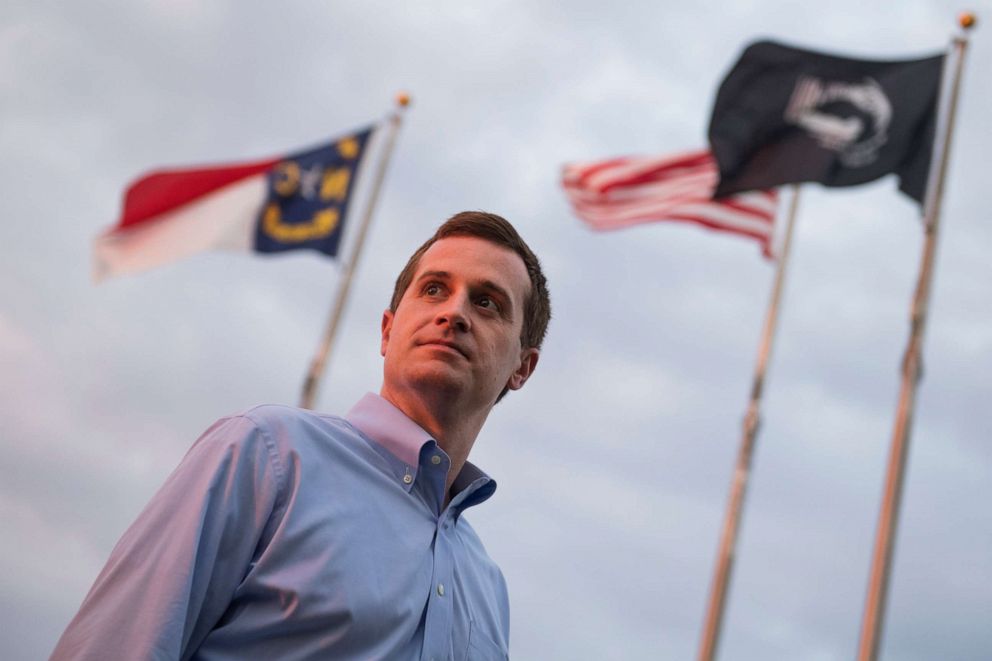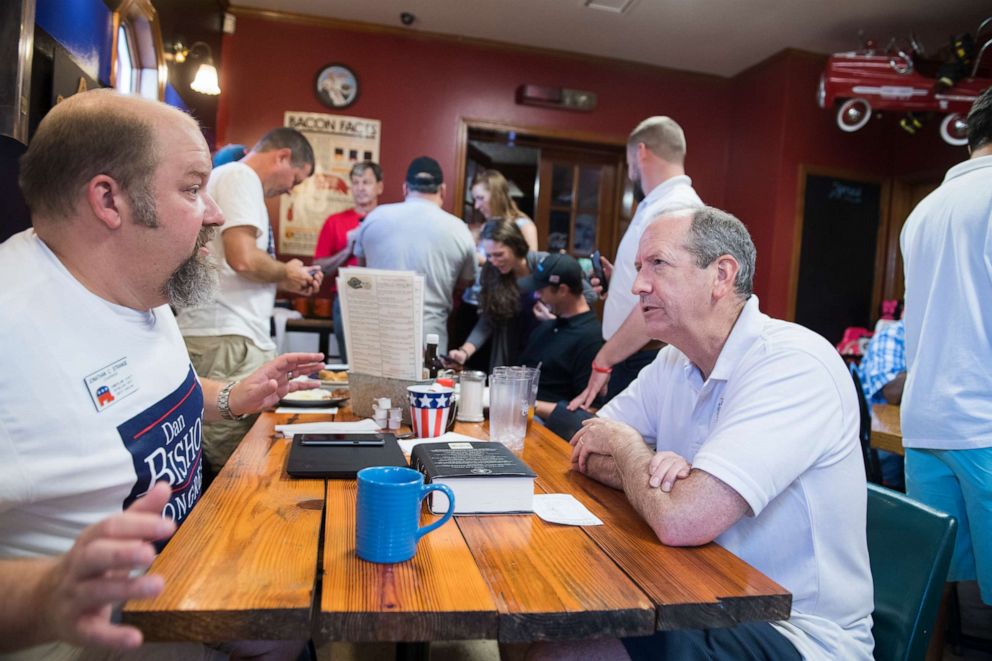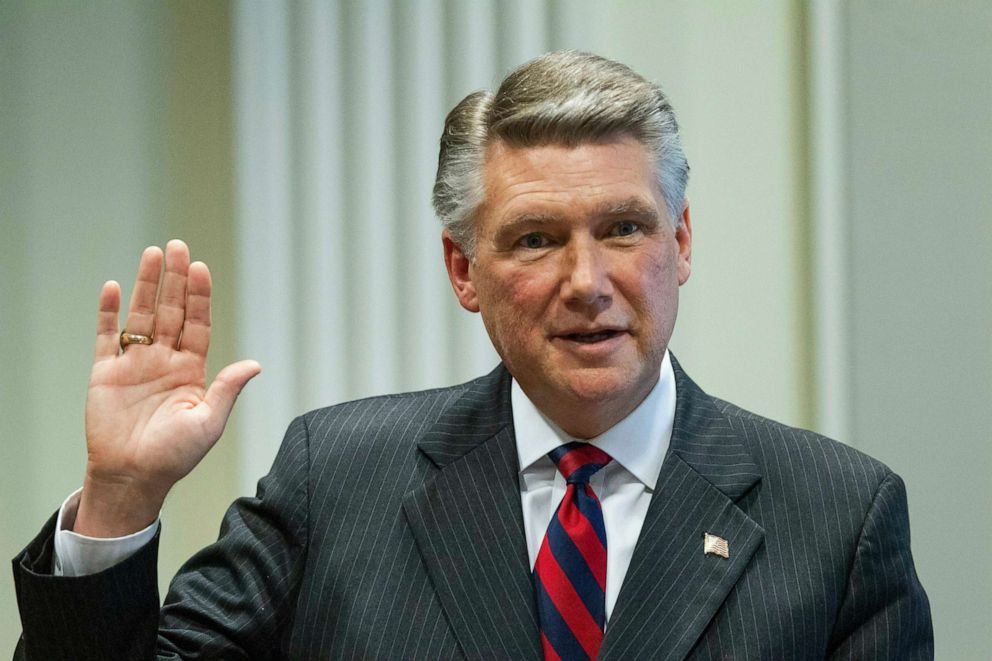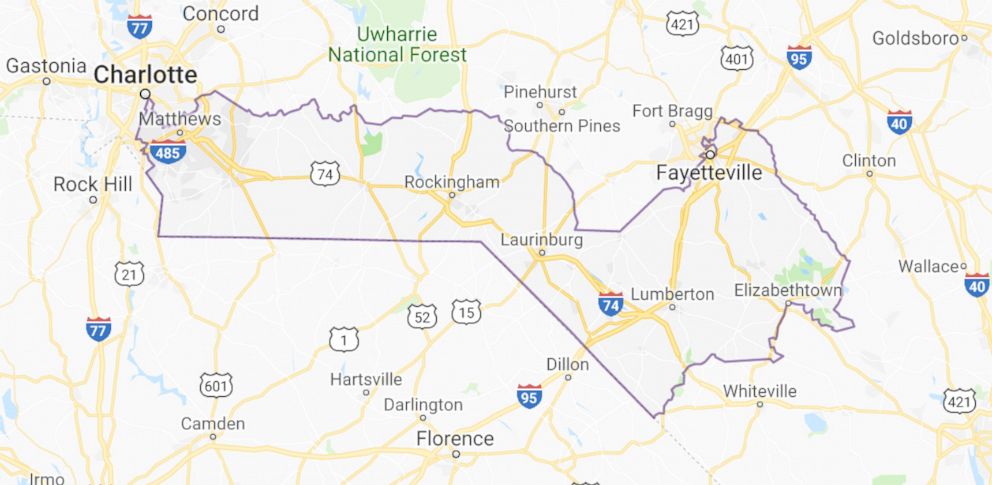Last remaining US House race of 2018 a 1st test for the GOP ahead of 2020
A re-do election in the N.C. 9th Congressional District is set for Sept. 10.
The last U.S. House contest of 2018 and the first congressional test ahead of 2020 sits in North Carolina, where a re-do election in the state's 9th Congressional District is teeing up a tough battle between Republicans, who are defending a district that President Donald Trump carried by 12 points in 2016, and Democrats hope will extend their 2018 rout by one.

A Democratic victory in the contest -- between Marine veteran and small business owner Dan McCready and Republican state Sen. Dan Bishop -- would not only be a major upset for Republicans in a district long considered out of reach for Democrats, but it could also potentially stifle the GOP's hopes early of reclaiming a House majority in 2020.
For the GOP, the costly, competitive race is seen by some as a must-win after the resounding rebuke of their agenda and Democrats' 40-seat gain in 2018.
A Republican loss "reinforces the dynamics coming out of the 2018 election that Republicans are increasingly struggling in urban and suburban districts," said Eric Heberlig, a political science professor at the University of North Carolina at Charlotte. "It's a message that ... districts that have traditionally been theirs, and they still should have the advantage in, are still breaking against them, and similar districts going into 2020 are at severe risk."

The race, the first congressional election to be redone since 1974, is in a district that borders South Carolina and currently extends from Charlotte's suburbs to more rural areas east of the city after being redrawn in 2016 -- representative of the exact areas Trump needs to win to secure his reelection.
"What would be different, say, about NC-09 -- and many of the suburban districts we saw flip over in 2018 -- is that this is the South," Herberlig continued. "The South suburbs has traditionally been the heart of the Republican base."
On Thursday, Trump tweeted his endorsement of Bishop and said he was "looking forward to soon being in North Carolina to hold a big rally for wonderful Dan Bishop," signaling a late push by the president to buoy the state senator. The Trump campaign also emailed supporters Friday asking for donations to be split between Bishop and the president's joint fundraising committee, Trump Make America Great Again Committee.
If Bishop edges out a win, the contest could provide a battle-tested pathway for GOP candidates seeking to win back those seats currently held by Democrats in Trump-won districts.
One key area of the district Heberlig pointed to that could signal the direction of the race is Bishop's state Senate district, which overlaps with the 9th Congressional District. While Bishop won the district, McCready also carried that section in 2018. In this off-year election, a "significant number of voters who in 2018 split their ticket voting for McCready for Congress and then Bishop for state Senate" will now have to choose between the two.
"That could be the outcome right there," he said.
The race is currently in the home stretch, with the general election slated for Sept. 10, after the North Carolina State Board of Elections never certified the 2018 results and voted unanimously earlier this year to hold a new election after a dramatic, months-long investigation into election fraud by a Republican operative hired by Harris. Democrats' hopes of winning in 2019 are boosted by the fact that, even with the presence of fraud marring the results, McCready was only narrowly defeated by then-Republican candidate Mark Harris by 905 votes.
McCready entered the race a proven fundraiser, having raised $6.7 million for his 2018 race. He's currently outpacing his Republican counterpart, raking in $3.2 million so far this year, nearly three times Bishop's $1.2 million.
But in a political landscape in which national party committees and interest groups can drop millions of dollars to influence an election outcome, the essence of the North Carolina contest is reflected in the amount of outside money flowing into the race.
The contest has seen more outside spending than any other race so far this year, except for the presidential election. With just a couple of weeks to go before the special election, at least $6 million of outside money has been either spent or secured by outside party committees, super PACs and politically active nonprofits, more than two-thirds of which is coming from the pro-Bishop side.

"Outside groups on both sides of the political spectrum -- including super PACs and dark money groups -- have become major players in the race," said Michael Beckel, who oversees the research operation at Washington-based advocacy group Issue One. "We know that outside groups outspent the candidates' own campaigns in a record number of races in 2018 -- and that's a record that is likely to be broken in 2020."
But it's not the majority status in the House that's drawing millions into the obscure special election in North Carolina, Heberlig said -- it's the parties and their allies' chance to win "bragging rights" to say that they won in a place where the outcome was uncertain, and one of the few opportunities ahead 2020 to test their messages to see what resonates with voters.
Some conservative outside groups such as Club for Growth and House Freedom Fund jumped into the on-air ad war in North Carolina as early as May, while the House Republicans' campaign arm and the Congressional Leadership Fund, the super PAC linked to GOP House leadership, together have been rolling out $4 million worth of ads targeting McCready's business record and repeatedly casting him as "Greedy McCready."
In one of its most recent attacks against McCready, the National Republican Congressional Committee also accused the Democrat of getting help from a new Democratic leadership-linked big-money group called House Majority Forward, which dropped half a million dollars on an ad campaign to support McCready just this week. Established as a 501(c)(4) nonprofit, the group has yet to disclose its source of funding.
Other liberal groups such as Environmental Defense Action Fund and VoteVets have also been active on the airwaves as early as last month, but in an off-cycle election when television ads only reach a small fraction of voters who can actually participate, the effect of multiple six-figure ad buys remains to be seen.
The Democratic Congressional Campaign Committee, the campaign arm of House Democrats, is utilizing a strategy modeled after Pennsylvania Congressman Conor Lamb's successful win in the 18th Congressional District: Focus on turnout early and hit the airwaves late with an ad blitz. The committee launched its first $600,000 TV ad buy last week.

"Our strategy here was to be quiet and low early, and leave options on the table if this race continued to be alive and it's very alive right now," a DCCC aide told ABC News. "And we're here in the end."
In a memo circulated to the party's caucus and obtained by ABC News, the DCCC outlined its efforts to win the district in the special election -- including a decision to appear on the sidelines until the final weeks of the race.
"The DCCC's early and intentionally non-flashy investment in NC-09 has already eclipsed the $1.2M spent by the Committee in the entirety of the PA-18 special election," the memo reads. "The DCCC's strategic investments in that race, also in a deep-red district, allowed Conor Lamb to carry his own message to voters in Western Pennsylvania, where early, overt national Democratic investment would have been a net-negative for the campaign."
The DCCC has been spending over $2 million for months on tactics including direct voter contact, digital advertising and turnout research.
"In a special election like this, it is turnout that matters," Heberlig said. "That probably favors Republicans, because their voters are much more reliable than Democratic voters are."
ABC News' John Verhovek contributed to this report.




